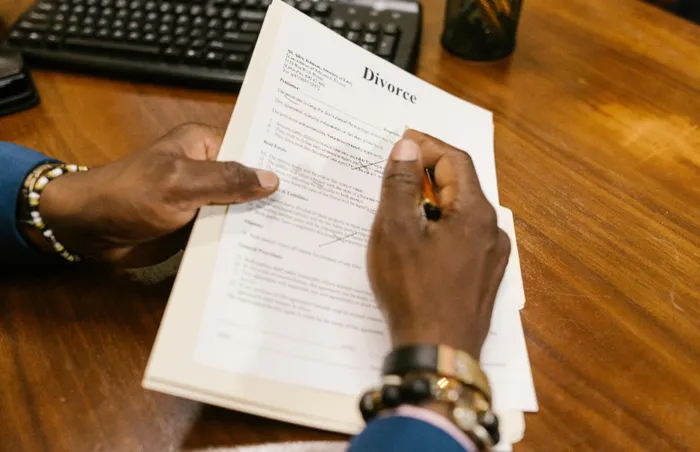
Divorce can be a challenging time, both emotionally and financially. Discover 12 practical strategies to help you regain control of your finances and build a secure future after divorce.
Image: Pexels.com/RDNE Stock project
Divorce can be emotionally draining and financially destabilising, and the road to recovery starts with taking back control of your finances. Whether you’re rebuilding from scratch or recalibrating your financial plan, these 12 practical strategies can help you move forward with confidence.
1. Take ownership of your accounts: Separating all financial ties from your former spouse involves setting up accounts in your own name, redirecting all income and debit orders, and closing any joint accounts that are no longer needed. Ideally, simplify your portfolio by consolidating your accounts and limiting the number of credit cards you use going forward.
2. Draft a budget that reflects your new reality: Moving from a dual-income household to a single-income home requires a fresh approach to budgeting. Focus on creating a flexible budget that reflects your new expenses with room to manipulate as you navigate your changed circumstances.
3. Avoid rushed financial decisions: While it may be tempting to make big decisions in the wake of divorce, our advice is to exercise patience. Acting too quickly while your financial position is uncertain and emotions are running high can have far-reaching tax and legal implications. Instead, delay major financial decisions until the division of assets has been finalised and emotions have tempered.
4. Update your beneficiary nominations: It’s imperative to reassess your life insurance policies following a divorce, but be cautious of naming your children as beneficiaries on your life policies. Instead, consider creating a testamentary trust in terms of your Will with your children named as beneficiaries. Naming the testamentary trust as the beneficiary of your life policy will ensure that the proceeds are housed in the trust and managed in your children’s best interests.
5. Reassess your short-term insurance needs: Your short-term insurance needs will likely change after divorce, especially if you are living in a new home with fewer possessions. Use this transition period to take stock of your assets, create an inventory, and obtain new insurance quotes tailored to your revised needs.
6. Create a debt repayment plan: Legal fees, moving costs, and lifestyle adjustments can leave you financially stretched. If you’ve taken on debt, prioritise paying it down while preserving your credit score. If you’ve never borrowed in your own name, consider a small credit facility to establish a track record of responsible credit use.
7. Prioritise building a cash buffer: Without your partner’s income to fall back on, an emergency fund becomes a priority, especially if you are dependent on your former spouse for maintenance income. This buffer can protect against late maintenance payments, retrenchment, illness, or disruptions in income.
8. Protect your ability to earn: As a single person, your income is now your greatest asset, and it’s important to ensure it. Be sure to put a comprehensive income protection plan in place that includes cover for temporary disability. Further, give consideration to the waiting periods imposed on your policy.
9. Redraft your will without delay: You have three months after divorce to update your Will—after that, any provision made for your ex-spouse in terms of your Will remains binding. Ideally, review your executor, guardianship appointments, and whether your testamentary trust structures still reflect your wishes.
10. Revisit your retirement fund beneficiaries: Be aware that retirement fund death benefits are distributed in terms of Section 37C of the Pension Funds Act. This means that the fund trustees are obliged to distribute the benefits amongst those people who were financially dependent on you at the time of death.
11. Be objective about keeping the family home: Beware of forming an emotional attachment to the family home and insisting on it in terms of the divorce settlement. Besides the costs of upkeep, rates, insurance, and running costs, bear in mind that property is an illiquid asset that may impact your cash flow position going forward.
12. Rebuild your retirement savings: Divorce often disrupts long-term financial plans, particularly those related to retirement savings. Whether you’ve lost pension benefits in the settlement or are starting from scratch, reset your goals and align them with your new circumstances. Maximise tax-deductible contributions to retirement funds and work with an advisor to map a realistic path forward.
Rebuilding your financial life after divorce isn’t a once-off event—it’s a process that takes planning, patience, and clear decision-making. By addressing each aspect of your finances systematically, you’ll lay the groundwork for a more secure, independent future. Above all, remember that financial resilience isn’t built overnight, but each step forward brings you closer to freedom.
* Odendaal is an associate financial planner at Crue Invest.
PERSONAL FINANCE